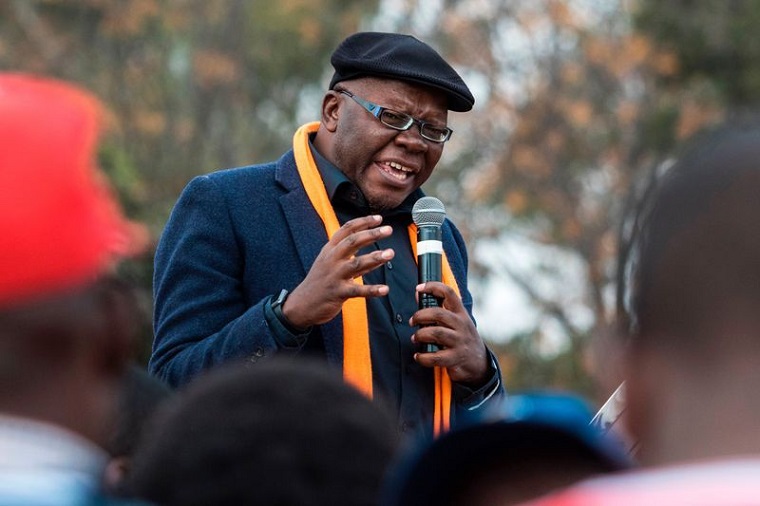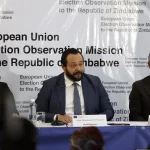While such feverish conspiracy theories, which curiously assume that Africans are incapable of leading without external agency, don’t deserve a response, the real problem is the Orwellian description of devastated Zimbabwe as some sort of economic paradise.
The documentary actually claims that Zimbabwe under Mnangagwa has made startling progress.
“For the past five years,” it says, “Zimbabwe has been on a growth trajectory with its economic transformation having progressed astronomically in a short space of time like never experienced since its independence as the second republic under the stewardship of President Emmerson Mnangagwa has led a solid and formidable plan to improve the livelihoods of its nationals.”
How wrong.
The documentary argues that Zimbabwe, if it were not for these externalist conspiracies dragging it down, would be a land of prosperity.
How ahistorical and ludicrous.
The problem with Zimbabwe is not that people outside want to drag it down. It’s that ZANU-PF has been uber-successful in being Zimbabwe’s own worst enemy in this regard.
Under ZANU-PF leadership, Zimbabwe’s per capita income went from US$1 739 at independence in 1980, to US$1 306 today, a decline of 25%, at a time when global per capita income has gone up by nearly 100%, and even sub-Saharan Africa’s income rose by 8%.
This is despite perhaps as many as five million Zimbabweans, or 30% of the population, having left to live outside, sending back as much as US$1-billion annually in remittances, more than a fifth of the government’s annual budget of about US$4.5-billion.
Today 6.6 million Zimbabweans, or more than 40% of the population, live in extreme poverty, joblessness is so endemic it is pointless to count, and more than one-quarter of children have stunted growth as a result of a lack of nutrition. These are not the only indicators of decline. The country’s infrastructure is on its knees.
Since independence, while the population has more than doubled from seven million to 16 million, the country has added just 25% in effective electricity output, as many of its roads and nearly all of its railways have deteriorated to the point of dysfunctionality. According to the UN Economic Commission for Europe’s 2022 report, 70% of Zimbabwe’s total road network is in poor to mediocre condition, and just 25% in good to very good condition.
It notes, “The increase of 77% in the number of vehicles from 2010 to 2019 has not been accompanied by any meaningful road upgrade or maintenance of existing road infrastructure since independence in 1980.”
As for the rail network, “Once touted as one of the best rail companies in Africa … NRZ [National Railways of Zimbabwe] has been run down to the extent that the sound of moving trains is a rare phenomenon,” notes Africa Report.
The problem behind all of this is, simply, politics. Attempts to remedy this situation fall foul of ZANU-PF’s serial and brazen defrauding of elections, a fact recognised by most Africans. Only three of 16 SADC African heads of state — South Africa, Congo and the old ally Mozambique — attended Mnangagwa’s inauguration after he supposedly won this August’s election.
Now this is somebody else’s fault. Just like the fiction that sanctions against Zimbabwe are causing poverty, this too is a fiction.
Continued next page
(549 VIEWS)


